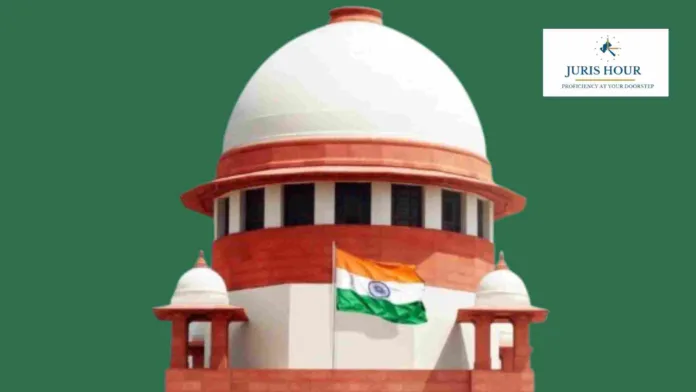In a landmark judgment, the Supreme Court of India has ruled that death penalty cases can be reopened under Article 32 of the Constitution if procedural safeguards and mandatory sentencing guidelines are not followed.
The ruling came while hearing the plea of Vasanta Sampta Dupare, a Nagpur resident convicted for the rape and murder of a four-year-old girl. Dupare was sentenced to death, and his punishment was upheld by the apex court in 2017.
On Monday, however, a three-judge bench comprising Justices Vikram Nath, Sanjay Karol, and Sandeep Mehta set aside its earlier verdict and directed that Dupare’s sentence be reconsidered, citing breaches of procedural requirements.
Breach of Safeguards in Sentencing
The bench observed that while awarding the death penalty, the trial courts had not complied with mandatory procedures, including consideration of mitigating circumstances. The Court emphasized that procedural fairness and safeguards must be strictly applied before confirming a death sentence.
Quoting the 2022 Manoj vs Madhya Pradesh judgment, the bench reiterated that trial courts must collect a detailed psychiatric and psychological evaluation report of the accused before imposing capital punishment. “A fresh hearing will be conducted to decide the punishment,” the Court said, granting significant relief to Dupare.
Article 32 Empowerment
The Court clarified that Article 32 of the Constitution, which provides the right to constitutional remedies, empowers the Supreme Court to reopen capital punishment cases if due safeguards are ignored.
“This corrective power is invoked precisely to compel rigorous application of the safeguards laid down in the Manoj vs Madhya Pradesh judgment,” the bench explained, highlighting that the constitutional remedy ensures justice even after confirmation of a death penalty.
Wider Implications
This ruling is expected to have far-reaching implications on pending and future death penalty cases in India. Legal experts believe it strengthens the scope of judicial review in matters of life and death, ensuring that human rights protections are not compromised by procedural lapses.
Other Developments in Court
- Ashoka University Professor Relief: The Supreme Court barred a trial magistrate from taking cognisance of a chargesheet against Ashoka University professor Ali Khan Mahmudabad. The case was linked to his social media posts on Operation Sindoor, with the bench questioning why the magistrate was “misdirecting itself.”
- Sanjay Kumar FIR Stayed: The Court also stayed FIRs registered against political analyst and former CSDS director Sanjay Kumar. The FIRs concerned his tweets alleging large-scale voter number discrepancies in the 2024 Maharashtra elections.
Conclusion
The Supreme Court’s ruling marks a significant expansion of judicial oversight in death penalty cases. By reaffirming the role of Article 32, the Court has underscored that the ultimate punishment cannot be carried out unless all constitutional and procedural safeguards are rigorously adhered to.
Case Title: Vasanta Sampat Dupare v. Union of India & Anr.
Date: August 25, 2025

